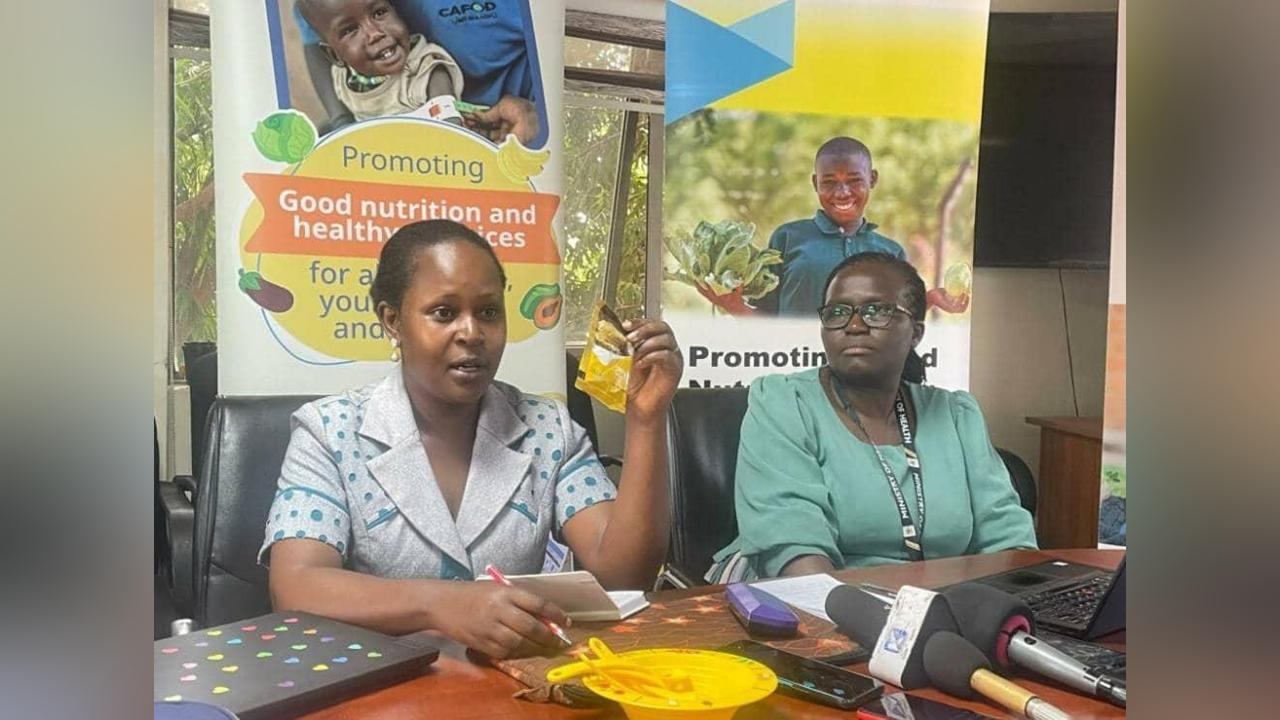Africa-Press – Uganda. Uganda has made strides in combating malnutrition, but significant challenges persist—especially in regions that ironically produce much of the country’s food.
According to the 2022 Uganda Demographic and Health Survey (UDHS), 26% of children under five are stunted, with Karamoja registering the highest rate at 40%.
Alarmingly, food-abundant areas like Tooro and Kigezi also show high rates of child malnutrition.
“It’s unfortunate that regions which contribute heavily to the country’s food supply still struggle with child malnutrition,” said Samalie Namukose, assistant commissioner of the Nutrition Department at the Ministry of Health.
Malnutrition affects more than just children. Uganda continues to grapple with nutrient deficiencies, especially among pregnant women, adolescent girls, and people living with HIV.
According to nutritionist Sarah Ngarombi, 26% of Ugandan women are obese—17% of them within reproductive age—while 23% of pregnant women suffer from high blood pressure, posing risks to both mother and child.
To address these challenges, the Ministry of Health is promoting optimal infant feeding, including early breastfeeding within the first hour of birth.
Laura Ahumuza Turinawe, Senior Nutritionist and MIYCAN focal point, announced plans to establish breast milk banks in regional hospitals for vulnerable newborns.
In Kamwenge District, where child malnutrition remains high, the Ministry has launched an egg powder nutrition campaign to promote daily egg consumption as a protein-rich solution for growing children.
Adolescent nutrition is also a focus, with folic acid supplementation being introduced in schools to support girls’ development and prevent complications in future pregnancies.
Efforts are further bolstered by international partnerships. Food for the Hungry Canada recently donated 2.5 million doses of deworming tablets, valued at Shs2.5 billion, targeting children and pregnant women through the Integrated Child Days campaign.
Dr. Yvonne Karamaji, Executive Director of Mildmay Uganda, emphasized the link between sanitation and nutrition.
“Children under 14 should deworm twice a year,” she said. “Worm infestations contribute to anemia, weight loss, and stunting—issues worsened by poor hygiene.”
As Uganda pushes ahead with these interventions, health experts stress that bridging the nutrition gap will require sustained community engagement, education, and targeted support for the country’s most vulnerable.
For More News And Analysis About Uganda Follow Africa-Press






